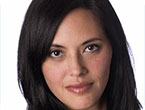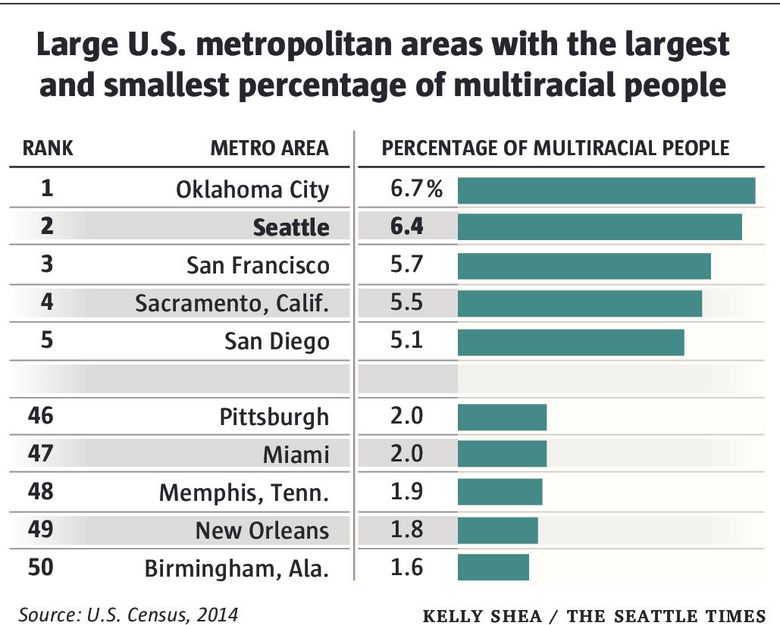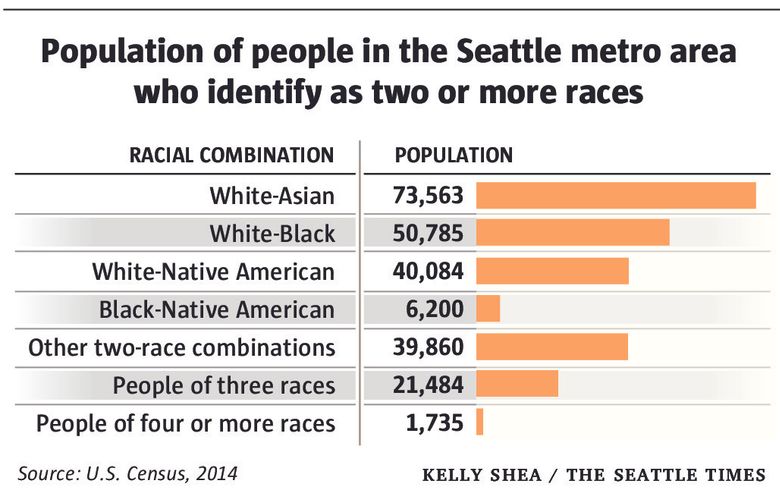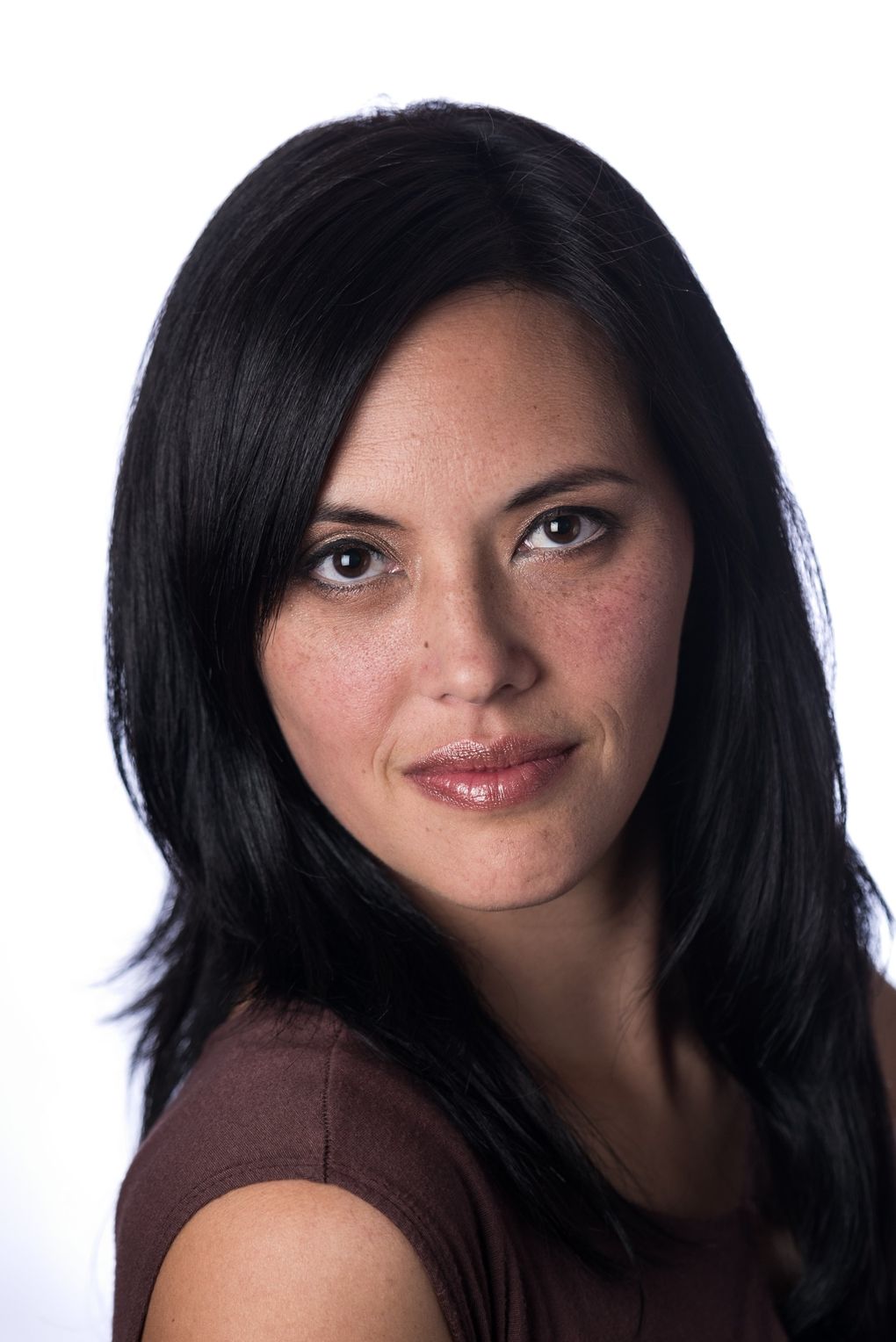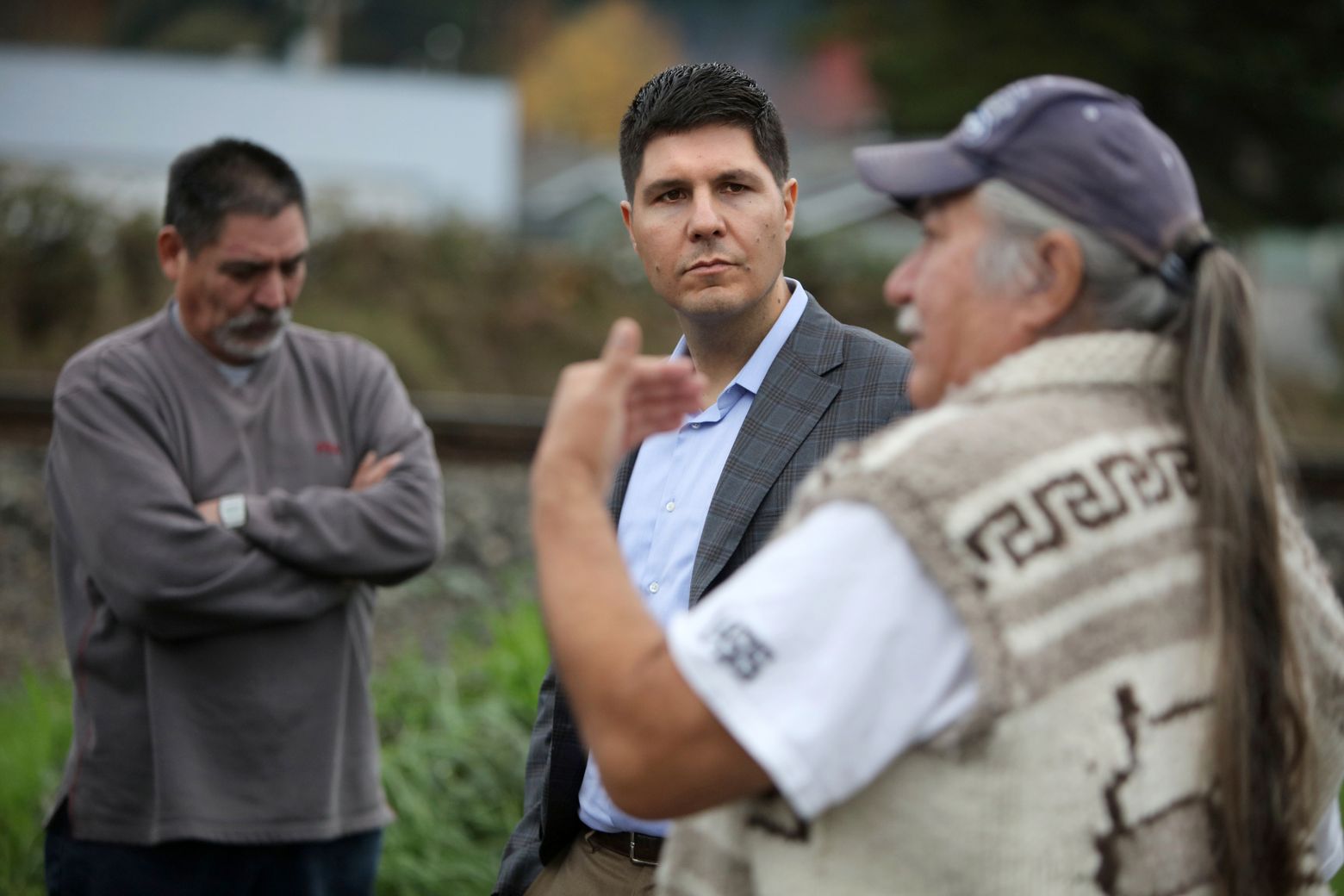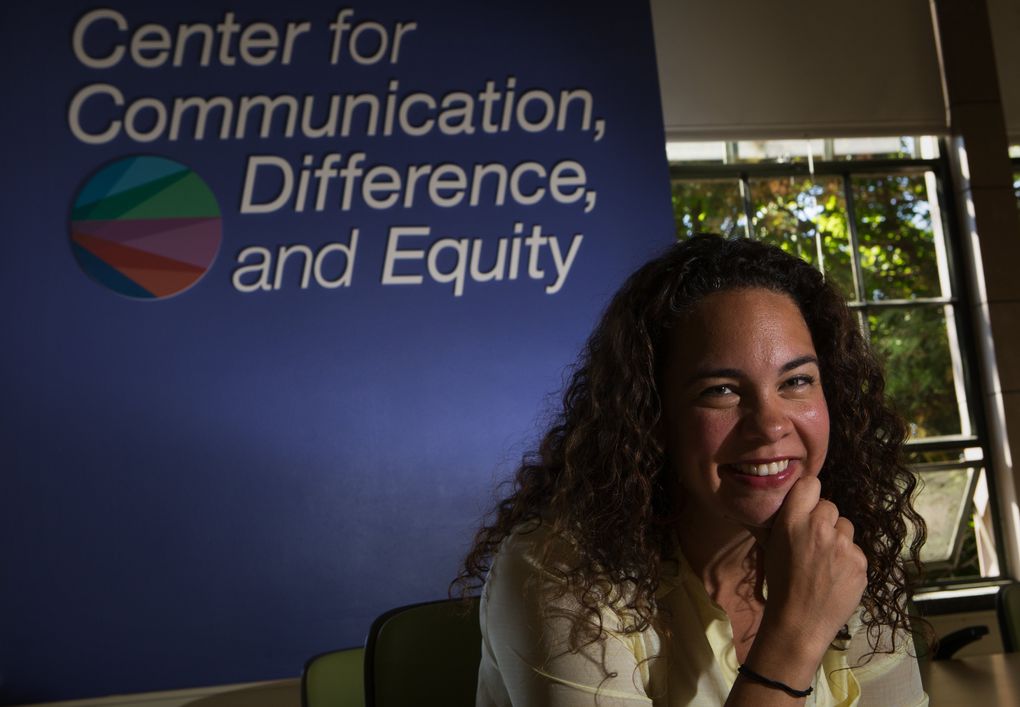From Raised Eyebrows To Raised Curtains: Rachel Atkins Tackles Racial IdentityPosted in Articles, Arts, Media Archive, Passing, United States on 2016-11-10 20:57Z by Steven |
From Raised Eyebrows To Raised Curtains: Rachel Atkins Tackles Racial Identity
KUOW.org 94.9 FM: Seattle News & Information
Seattle, Washington
2014-02-27
Marcie Sillman, Arts and Culture Reporter
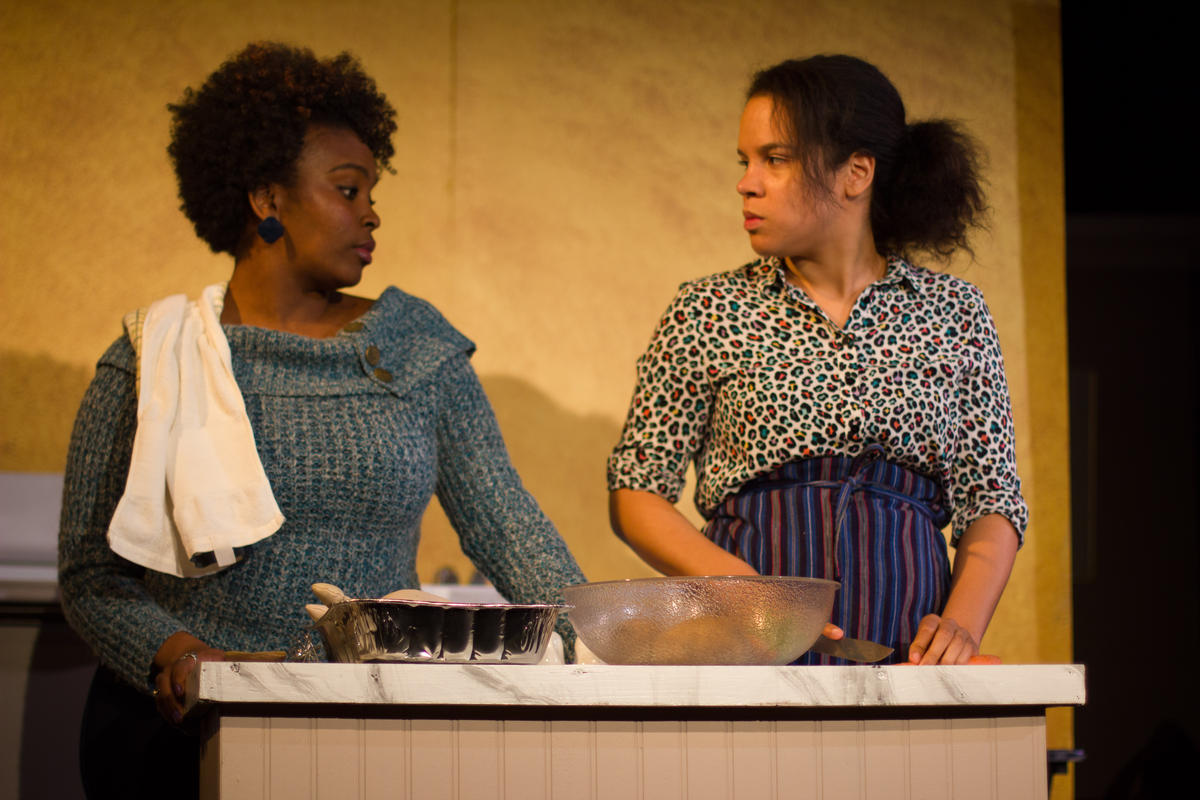 Actresses Kia Pierce and Marquicia Dominguez in Rachel Atkins’ play, “Black Like Us.” Credit Courtesy of Annex Theatre/Shane Regan |
When Rachel Atkins was 7, she and her sisters got a new stepfather. Atkins loved this man, but when she and her family went out in public, they raised a lot of eyebrows.
“My stepdad, who raised me, was black,” says Atkins. “We were three little white Jewish girls in New Jersey, when multi-racial families were not that common. We would get asked all the time, ‘Who’s that guy with your family?’ And we’d say, ‘That’s our dad.'”
Decades later, Atkins’ experience was part of the impetus behind her new play “Black Like Us,” currently having its world premiere production at Seattle’s Annex Theater.
“Black Like Us” is about two black sisters in 1950s Seattle. Feisty Maxine is attracted to the nascent Civil Rights movement; lighter-skinned Florence is in love with a white man. Following her heart, Florence passes herself off as white and estranges herself from her entire family…
